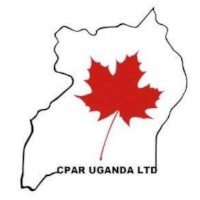Naican was of a tender school-going age in the 1970s when she came to the city to live with her aunt, the sister of her mother. Her aunt, a house wife, married to a rich man, with whom she had her own children – three boys and a girl; cousins to Naican.
Her aunt’s husband, her uncle, was a high level civil servant whose job entitled him to a stately and huge government house with an expansive compound laden with loads of beautiful flowers of many colors and within well manicured green grass lawns.
There was a powerful government primary school in the neighborhood that her cousins attended – the school for the children of the rich. There was also a church owned and run school in the neighborhood, which was typically attended by the children of the poor and the poor relatives of the rich.
For decades, while her cousins rushed off to school, Naican mopped floors of the big house, washed clothes, assisted in cooking food and in maintaining the expansive compound. And because she was her aunt’s niece she was not paid a single cent for her labour. She was a slave and effectively the stately government house with beautiful flowers and manicured green grass lawns, her aunt’s home, was her prison; and her aunt her jailer.
All Naican’s hopes and dreams of the opportunities that living in the city with a rich aunt would bring, such as attending school, were shattered. Irrespective of the fact that her uncle did offer to pay the full cost of her schooling. Her aunt was adamant that Naican had come to live with them to assist her with domestic work and not to attend school.
Mercifully for Naican, because her cousins, aunt, uncle and their friends often communicated in the official language of Uganda, she was made to learn spoken English. Being able to speak English came in handy for her when she was finally able to break her servitude and to move away from her aunt’s home.
Her ability to speak English, enabled Naican to get a job as a well-paid maid with expatriates. One of her employers went a step further and paid for functional adult literacy classes for her – basic reading and writing. Be that as it may denying her formal schooling has significantly limited her. Every so often, when she remembers the injustice done to her, she tears up. She will never recover her childhood or her youth.
Much, much later after Naican broke her servitude, her aunt expressed regret for having denied her an education by denying her formal schooling. Too little, too late.
Sadly, this true story is not the exception in Uganda. Uganda is among nations that remain source and destination countries for men, women and children subjected to forced labor and sex trafficking. Human trafficking is a modern form of slavery. Men, women and children in Uganda are trafficked within our borders and without our borders.
Some of the young adults whom we, at CPAR Uganda, target to benefit or are beneficiaries of our mentoring program have similar stories to tell as Naicans. We are grateful to all who have made a donation in support of our work that is enabling us to equip young adults from disadvantaged backgrounds with life skills.
We continue to need your support. To make a donation click here.
In the meantime, today, 18th October 2023, is #AntiSalveryDay in the #UK and so it should be for #Uganda too. Join us in helping to raise consciousness and to put a spot light on the ills of modern day slavery in Uganda and in the world. Please share this post to your wider networks calling on them to raise their voices against slavery in all its forms.

